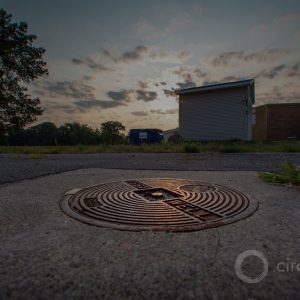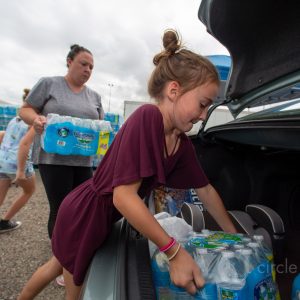The Stream, September 26: Residents of Water-Stressed El Salvador Campaign Against Looming Privatization
The Global Rundown
Residents of water-stressed El Salvador protest against privatization. The Saudi-UAE alliance agrees to open humanitarian corridors in Yemen to help ease civilian suffering. Duke Energy says that a North Carolina coal ash dump flooded by Hurricane Florence poses no threat to the environment. Dozens are rescued in India after flooding hits Himachal Pradesh and Kashmir. An Iraqi activist is shot dead in Basra, the site of ongoing unrest over water contamination and other issues. A farmer from Burkina Faso wins the “alternative Nobel prize” for reviving an ancient farming technique to fight drought.
“If local communities and international experts are ready to learn from his wisdom, it will be possible to regenerate large areas of degraded land, decrease forced migration and build peace in the Sahel.” –Ole von Uexkull, executive director of the Right Livelihood Award Foundation, in reference to the efforts of Yacouba Sawadogo. For the past three decades, Sawadogo has taught the ancient farming method of “zai,” which involves digging pits in hardened soil to better concentrate water and nutrients. He was recently awarded Sweden’s “alternative Nobel prize” for using the technique to alleviate hunger in Burkina Faso and Niger. Voice of America
Latest WaterNews from Circle of Blue
Announcing Michigan’s Groundwater Emergency Series, from Circle of Blue:
Michigan’s Groundwater Emergency – Groundwater in Michigan is “compromised and deteriorated.”
Fastest-Growing Michigan County Reckons With Groundwater Pollution and Depletion – Ottawa County leaders recognize the need to act on groundwater.
Drip by Drip, Septic Systems Foul Michigan Waters – The state relies on backyard sewage treatment more than most.
Remembering Michigan’s PBB Crisis – Contamination of the food-supply chain in Michigan in the 1970s was one of the worst mass poisonings in U.S. history. The events still resonate today.
Michigan PFAS by the numbers: How much is unsafe? – Confusion runs rampant about PFAS dangers. The federal government and states can’t agree on how much is unsafe for states. Here’s a primer on what’s known so far.
By The Numbers
95 percent Proportion of El Salvador’s surface water that is contaminated. Water access and inequality are already major issues in the Latin American country. Now, residents fear that the Salvadoran government is taking steps toward privatization, which activists believe will further complicate water availability. The Guardian
400,000 tons Amount of coal ash sitting in a North Carolina dump that was flooded by Hurricane Florence. Duke Energy, owner of the site, says they have conducted testing and found no harm to the environment from the overflow. The N.C. Department of Environmental Quality is testing samples of nearby river water as well. The New York Times
Science, Studies, And Reports
The Saudi-UAE military alliance reported that it will open two key humanitarian corridors in Yemen to allow easier passage of life-saving aid. The move comes amid an international outcry against civilian suffering in war-ravaged Yemen. Al Jazeera
In context: HotSpots H2O, September 24: Yemen at ‘Tipping Point’ of Famine as Violence Obstructs Food, Fuel Access.
On The Radar
Violence has broken out again in Basra, Iraq, the site of recent protests over water contamination and other neglected public services. Soad al-Ali, a human rights activist who played a role in organizing the protests, was shot dead on Tuesday by masked gunmen as she exited her car. The murder is the first assassination since Basra’s protests broke out this summer. The New York Times
In context: HotSpots H2O, September 10: Deadly Protests in Iraq’s Oil Hub Driven by Polluted Water, Government Neglect.
Spotlight: India
Follow The Stream for daily coverage on India’s water crisis.
India’s latest round of torrential monsoon rains hit Himachal Pradesh state this weekend, along with Indian-administered Kashmir. At least 19 people had to be rescued as flash floods and landslides tormented the region. Al Jazeera
Kayla Ritter is a recent graduate of Michigan State University, where she studied International Relations and Teaching English to Speakers of Other Languages. She is currently based in Manton, Michigan. Kayla enjoys running, writing, and traveling. Contact Kayla Ritter








Leave a Reply
Want to join the discussion?Feel free to contribute!